Fleurs du Mal Magazine


Or see the index
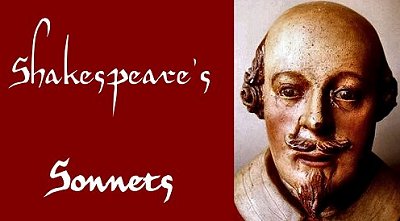
William Shakespeare
(1564-1616)
THE SONNETS
Sonnet 142
Love is my sin, and thy dear virtue hate,
Hate of my sin, grounded on sinful loving,
O but with mine, compare thou thine own state,
And thou shalt find it merits not reproving,
Or if it do, not from those lips of thine,
That have profaned their scarlet ornaments,
And sealed false bonds of love as oft as mine,
Robbed others’ beds’ revenues of their rents.
Be it lawful I love thee as thou lov’st those,
Whom thine eyes woo as mine importune thee,
Root pity in thy heart that when it grows,
Thy pity may deserve to pitied be.
If thou dost seek to have what thou dost hide,
By self-example mayst thou be denied.
![]()
kempis.nl poetry magazine
More in: -Shakespeare Sonnets

William Shakespeare
(1564-1616)
THE SONNETS
Sonnet 141
In faith I do not love thee with mine eyes,
For they in thee a thousand errors note,
But ’tis my heart that loves what they despise,
Who in despite of view is pleased to dote.
Nor are mine cars with thy tongue’s tune delighted,
Nor tender feeling to base touches prone,
Nor taste, nor smell, desire to be invited
To any sensual feast with thee alone:
But my five wits, nor my five senses can
Dissuade one foolish heart from serving thee,
Who leaves unswayed the likeness of a man,
Thy proud heart’s slave and vassal wretch to be:
Only my plague thus far I count my gain,
That she that makes me sin, awards me pain.
![]()
kempis.nl poetry magazine
More in: -Shakespeare Sonnets

William Shakespeare
(1564-1616)
THE SONNETS
Sonnet 140
Be wise as thou art cruel, do not press
My tongue-tied patience with too much disdain:
Lest sorrow lend me words and words express,
The manner of my pity-wanting pain.
If I might teach thee wit better it were,
Though not to love, yet love to tell me so,
As testy sick men when their deaths be near,
No news but health from their physicians know.
For if I should despair I should grow mad,
And in my madness might speak ill of thee,
Now this ill-wresting world is grown so bad,
Mad slanderers by mad ears believed be.
That I may not be so, nor thou belied,
Bear thine eyes straight, though thy proud heart go wide.
![]()
kempis.nl poetry magazine
More in: -Shakespeare Sonnets
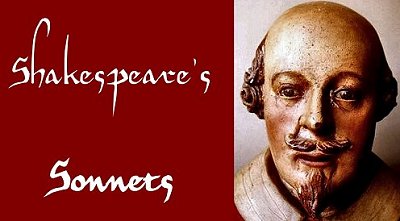
William Shakespeare
(1564-1616)
THE SONNETS
Sonnet 139
O call not me to justify the wrong,
That thy unkindness lays upon my heart,
Wound me not with thine eye but with thy tongue,
Use power with power, and slay me not by art,
Tell me thou lov’st elsewhere; but in my sight,
Dear heart forbear to glance thine eye aside,
What need’st thou wound with cunning when thy might
Is more than my o’erpressed defence can bide?
Let me excuse thee, ah my love well knows,
Her pretty looks have been mine enemies,
And therefore from my face she turns my foes,
That they elsewhere might dart their injuries:
Yet do not so, but since I am near slain,
Kill me outright with looks, and rid my pain.
![]()
kempis.nl poetry magazine
More in: -Shakespeare Sonnets
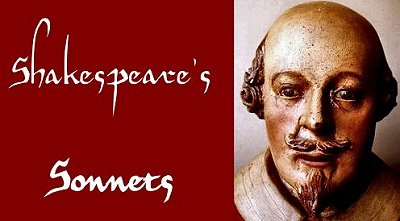
William Shakespeare
(1564-1616)
THE SONNETS
Sonnet 138
When my love swears that she is made of truth,
I do believe her though I know she lies,
That she might think me some untutored youth,
Unlearned in the world’s false subtleties.
Thus vainly thinking that she thinks me young,
Although she knows my days are past the best,
Simply I credit her false-speaking tongue,
On both sides thus is simple truth suppressed:
But wherefore says she not she is unjust?
And wherefore say not I that I am old?
O love’s best habit is in seeming trust,
And age in love, loves not to have years told.
Therefore I lie with her, and she with me,
And in our faults by lies we flattered be.
![]()
kempis.nl poetry magazine
More in: -Shakespeare Sonnets

William Shakespeare
(1564-1616)
THE SONNETS
Sonnet 137
Thou blind fool Love, what dost thou to mine eyes,
That they behold and see not what they see?
They know what beauty is, see where it lies,
Yet what the best is, take the worst to be.
If eyes corrupt by over-partial looks,
Be anchored in the bay where all men ride,
Why of eyes’ falsehood hast thou forged hooks,
Whereto the judgment of my heart is tied?
Why should my heart think that a several plot,
Which my heart knows the wide world’s common place?
Or mine eyes seeing this, say this is not
To put fair truth upon so foul a face?
In things right true my heart and eyes have erred,
And to this false plague are they now transferred.
![]()
kempis.nl poetry magazine
More in: -Shakespeare Sonnets

William Shakespeare
(1564-1616)
THE SONNETS
Sonnet 136
If thy soul check thee that I come so near,
Swear to thy blind soul that I was thy ‘Will’,
And will thy soul knows is admitted there,
Thus far for love, my love-suit sweet fulfil.
‘Will’, will fulfil the treasure of thy love,
Ay, fill it full with wills, and my will one,
In things of great receipt with case we prove,
Among a number one is reckoned none.
Then in the number let me pass untold,
Though in thy store’s account I one must be,
For nothing hold me, so it please thee hold,
That nothing me, a something sweet to thee.
Make but my name thy love, and love that still,
And then thou lov’st me for my name is Will.
![]()
kempis.nl poetry magazine
More in: -Shakespeare Sonnets

William Shakespeare
(1564-1616)
THE SONNETS
Sonnet 135
Whoever hath her wish, thou hast thy will,
And ‘Will’ to boot, and ‘Will’ in over-plus,
More than enough am I that vex thee still,
To thy sweet will making addition thus.
Wilt thou whose will is large and spacious,
Not once vouchsafe to hide my will in thine?
Shall will in others seem right gracious,
And in my will no fair acceptance shine?
The sea all water, yet receives rain still,
And in abundance addeth to his store,
So thou being rich in will add to thy will
One will of mine to make thy large will more.
Let no unkind, no fair beseechers kill,
Think all but one, and me in that one ‘Will.’
![]()
kempis.nl poetry magazine
More in: -Shakespeare Sonnets
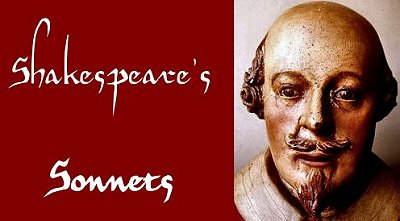
William Shakespeare
(1564-1616)
THE SONNETS
Sonnet 134
So now I have confessed that he is thine,
And I my self am mortgaged to thy will,
My self I’ll forfeit, so that other mine,
Thou wilt restore to be my comfort still:
But thou wilt not, nor he will not be free,
For thou art covetous, and he is kind,
He learned but surety-like to write for me,
Under that bond that him as fist doth bind.
The statute of thy beauty thou wilt take,
Thou usurer that put’st forth all to use,
And sue a friend, came debtor for my sake,
So him I lose through my unkind abuse.
Him have I lost, thou hast both him and me,
He pays the whole, and yet am I not free.
![]()
kempis.nl poetry magazine
More in: -Shakespeare Sonnets
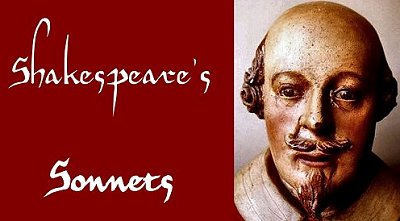
William Shakespeare
(1564-1616)
THE SONNETS
Sonnet 133
Beshrew that heart that makes my heart to groan
For that deep wound it gives my friend and me;
Is’t not enough to torture me alone,
But slave to slavery my sweet’st friend must be?
Me from my self thy cruel eye hath taken,
And my next self thou harder hast engrossed,
Of him, my self, and thee I am forsaken,
A torment thrice three-fold thus to be crossed:
Prison my heart in thy steel bosom’s ward,
But then my friend’s heart let my poor heart bail,
Whoe’er keeps me, let my heart be his guard,
Thou canst not then use rigour in my gaol.
And yet thou wilt, for I being pent in thee,
Perforce am thine and all that is in me.
![]()
kempis.nl poetry magazine
More in: -Shakespeare Sonnets

William Shakespeare
(1564-1616)
THE SONNETS
Sonnet 132
Thine eyes I love, and they as pitying me,
Knowing thy heart torment me with disdain,
Have put on black, and loving mourners be,
Looking with pretty ruth upon my pain.
And truly not the morning sun of heaven
Better becomes the grey cheeks of the east,
Nor that full star that ushers in the even
Doth half that glory to the sober west
As those two mourning eyes become thy face:
O let it then as well beseem thy heart
To mourn for me since mourning doth thee grace,
And suit thy pity like in every part.
Then will I swear beauty herself is black,
And all they foul that thy complexion lack.
![]()
kempis.nl poetry magazine
More in: -Shakespeare Sonnets

William Shakespeare
(1564-1616)
THE SONNETS
Sonnet 131
Thou art as tyrannous, so as thou art,
As those whose beauties proudly make them cruel;
For well thou know’st to my dear doting heart
Thou art the fairest and most precious jewel.
Yet in good faith some say that thee behold,
Thy face hath not the power to make love groan;
To say they err, I dare not be so bold,
Although I swear it to my self alone.
And to be sure that is not false I swear,
A thousand groans but thinking on thy face,
One on another’s neck do witness bear
Thy black is fairest in my judgment’s place.
In nothing art thou black save in thy deeds,
And thence this slander as I think proceeds.
![]()
kempis.nl poetry magazine
More in: -Shakespeare Sonnets
Thank you for reading Fleurs du Mal - magazine for art & literature